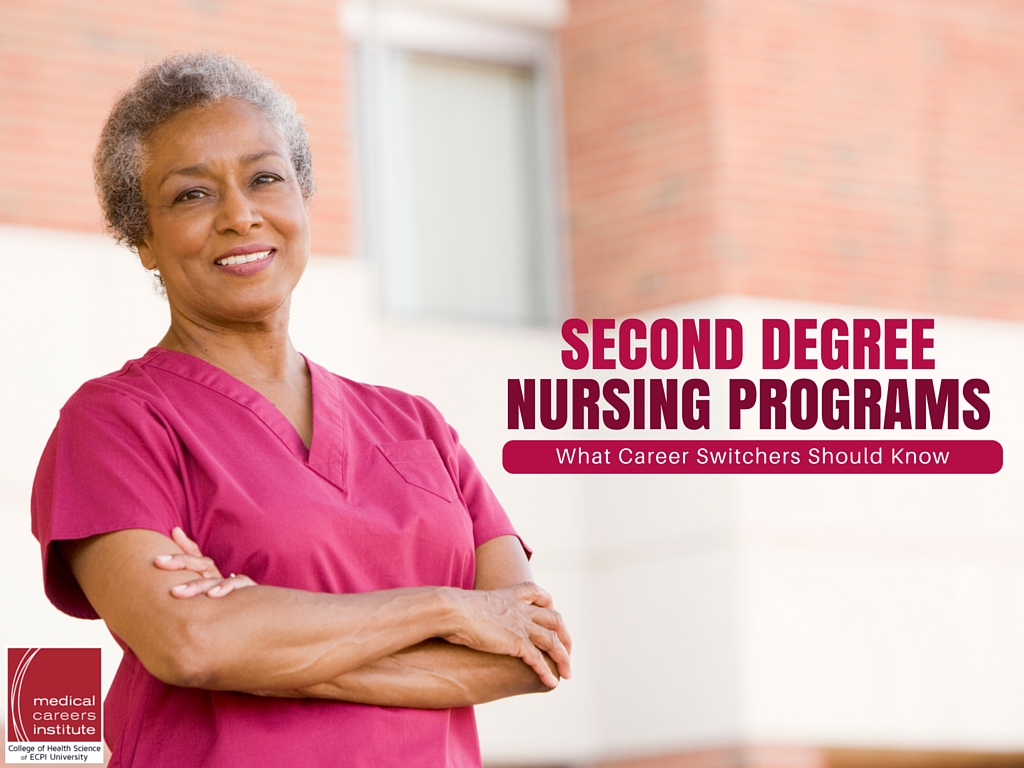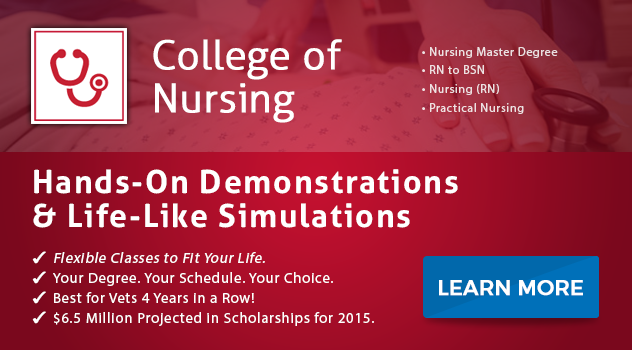
Second Degree Nursing Programs: What to Know
It’s a not-so-uncommon occurrence. Ten, even twenty years into a field, people begin wondering if they made the right choice … should they be doing something else? Often, it ends with an even bigger question: am I making a difference? Nursing is among the most admired professions, so it should come as no surprise that many give this profession a great deal of thought.
Surely, it takes a certain kind of person to be a nurse and a very specific kind of education. Some may even worry that they may be too old. The fact of the matter is this: more and more mature professionals are making the switch.
Am I Too Old to Become a Nurse?
According to the U.S. Department of Health and Human Services (HHS), the average age of nurses is on the rise, with about one-third of the nursing workforce now older than 50 years of age. They are joining a growing number of nurses who are taking their expertise to the next level. Ambitious nurses looking to move up are earning their Bachelor of Science in Nursing (BSN), with some going a step further with a Master of Science in Nursing.
According to HHS, nearly 28,000 RNs were awarded a post-licensure bachelor’s in nursing (RN-BSN) in 2011, and another 26,200 were awarded master’s or doctoral degrees. There has been an estimated 86% increase in the annual number of RN-BSN graduates, and a 67% increase in graduate degree awards, over just the prior four years.
In fact, a report in the Journal of Nursing Regulation indicates that approximately 39% of RNs held either a BSN or graduate degree as their initial credential. The increase in the percentage of respondents with a BSN as their initial education aligns with Health Resources and Services Administration’s (2013) results, which found an increase in baccalaureate-prepared first-time NCLEX-RN® test takers, a 135% growth from 2001 to 2011.
Am I Cut Out to Be a Nurse?
So now you have to ask yourself two questions: First, am I truly cut out to be a nurse? Second, am I prepared to go back to school? Let’s begin with the first. Great nurses all share certain traits. Here are the top 10 characteristics of successful nurses:
- Caring Nature: President Teddy Roosevelt once said, “Nobody cares how much you know until they know how much you care.”
- Detail-Oriented: The medical record is sacred. It must clear and accurate in order for doctors and caregivers to make informed decisions.
- Flexible: Emergencies occur. Whether it’s extended hours or covering another person’s shift, nurses are expected to adapt to the situation.
- Decisive: In a healthcare setting, being able to think on your feet and make quick and medically-appropriate decisions can make all the difference when there are lives on the line.
- Empathetic with Thick Skin: Nurses must be able to withstand the emotional responses from patients and family to provide supportive care.
- Strong Communication Skills: Nurses are the nexus of communications between the doctor, lab techs, patient, and families. Keeping everyone well-informed provides great comfort to those who are facing uncertain futures.
- Diligence: No matter if it’s the beginning of a shift or hour 11, nurses must guard against exhaustion and distraction to ensure they are paying attention to every detail.
- Calm Under Pressure: When life-threatening incidents occur, keeping your cool is a must.
- Resilience: a nurse must deal with a range of emotions, from the happiness of seeing a newborn baby to the loss of a patient.
- Physically Fit: Nurses work long hours and spend a lot of time on their feet. They have to lift and move patients, so being able to endure the strain of the job is essential.
Do you see bits of yourself in those descriptions? If so, great! Time to figure out the education side of things. Going back to school for several years would be a pretty large burden for someone who has already gone to college once. Many have homes, children, and numerous obligations.
Earn Your Second Degree in Nursing!
Fortunately, there is now a program available which allows switchers the opportunity to earn a BSN is just one year. With ECPI University’s Accelerated Bachelor of Science in Nursing, as long as you have a bachelor’s degree from an accredited college or university, you can transfer those credits and complete your BSN in as little as 12 months. There are some prerequisite classes involved, so some applicants may have to take a few night or online classes prior to enrollment. Call ECPI University today to learn more—it could be the Best Decision You Ever Make.
Cute enough to stop your heart, skilled enough to restart it sandyyyy_cx #nursingstudents #ecpi… https://t.co/1cwAUHlSwU
— Amelia Elizabeth (@nrseamelia) July 21, 2015
DISCLAIMER – ECPI University makes no claim, warranty, or guarantee as to actual employability or earning potential to current, past or future students or graduates of any educational program we offer. The ECPI University website is published for informational purposes only. Every effort is made to ensure the accuracy of information contained on the ECPI.edu domain; however, no warranty of accuracy is made. No contractual rights, either expressed or implied, are created by its content.
For more information about ECPI University or any of our programs click here: http://www.ecpi.edu/ or http://ow.ly/Ca1ya.


